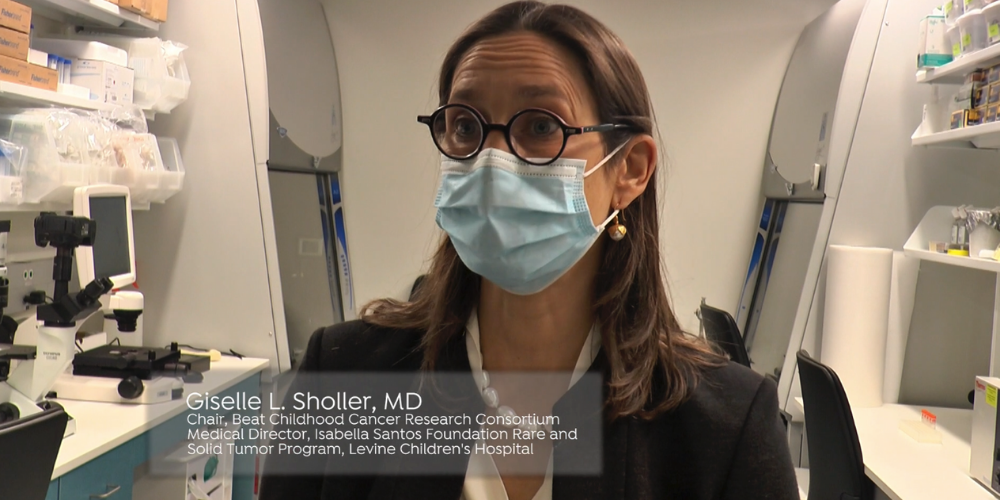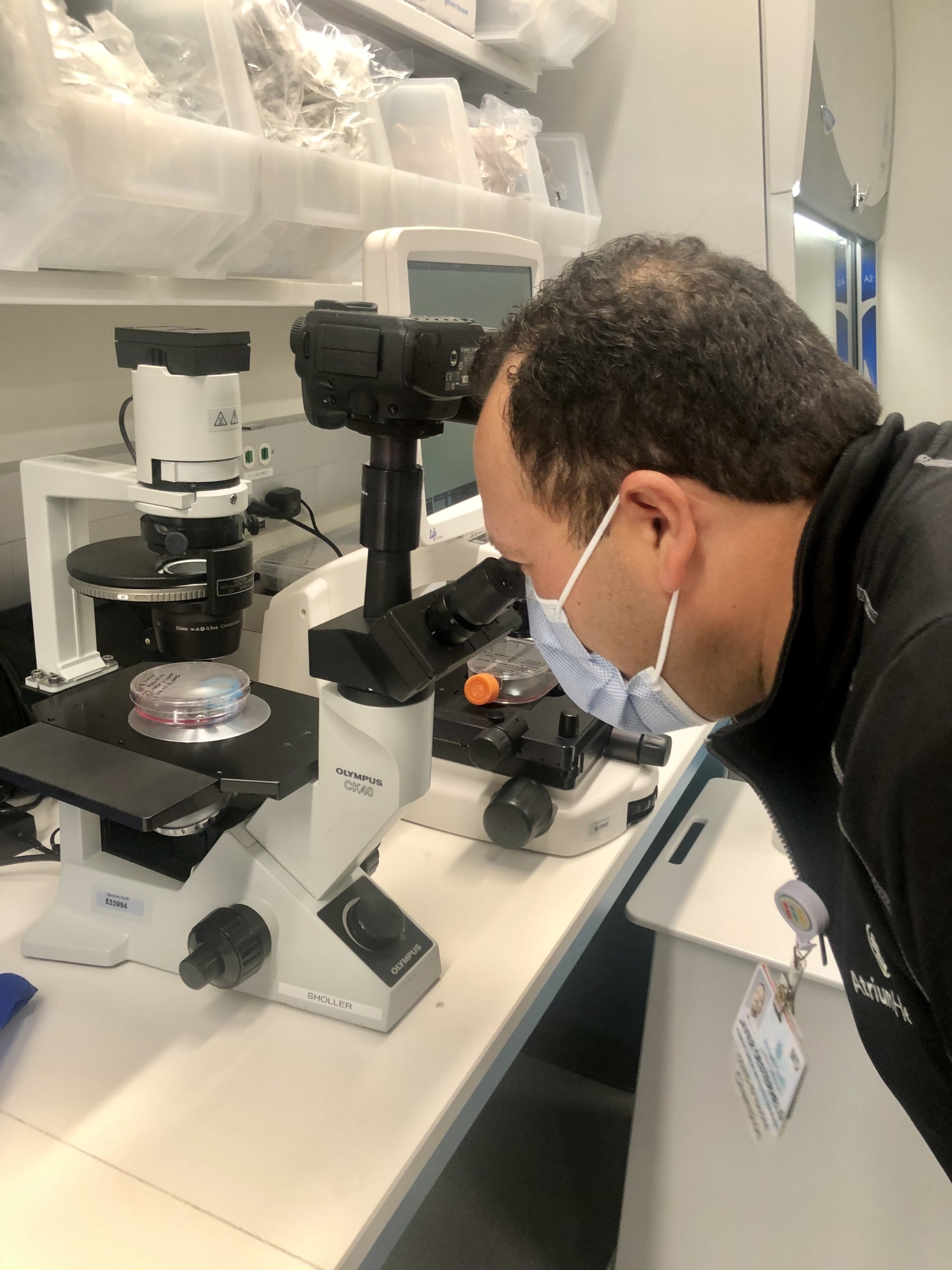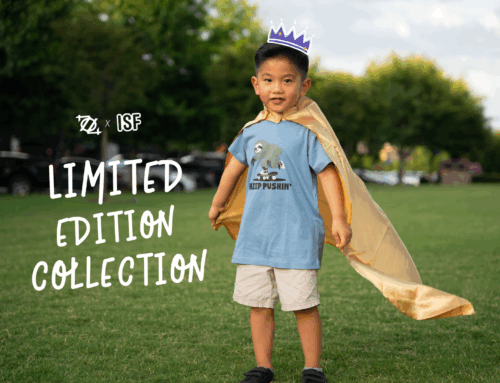
Pediatric Cancer Research Off & Running at Levine Children’s
Pediatric Cancer Research Off & Running at Levine Children’s
Written by Rachel Wood, Director of Marketing
 With the opening of the new pediatric cancer lab at Levine children’s in December of 2020, Dr. Sholler and Dr. Oesterheld’s first research priority is off and running, Precision Medicine. This Precision Medicine Program is an initiative that will advance the level of care that Levine Children’s can provide to the kids in the ISF Rare & Solid Tumor Program.
With the opening of the new pediatric cancer lab at Levine children’s in December of 2020, Dr. Sholler and Dr. Oesterheld’s first research priority is off and running, Precision Medicine. This Precision Medicine Program is an initiative that will advance the level of care that Levine Children’s can provide to the kids in the ISF Rare & Solid Tumor Program.
Dr. Sholler has been working on advancing precision medicine for years through the Beat Childhood Cancer research consortium before coming to Levine Children’s. Now with her research lab up and running in Charlotte, her team is busy creating tumor models for pediatric cancer. We learned last week that the first 2 rare pediatric cancer cell lines, for neuroblastoma and sarcoma, have been developed for this initiative research.
What does this all mean? Just like each patient, each cancer is unique. While patients traditionally have been treated in a one-size-fits-all approach with toxic treatments, doctors are now using genomic data to treat patients and their tumors in a more targeted way. This is called Precision medicine, which integrates the understanding of a child’s genes and the make-up of the tumor in that child to create more effective cancer therapies. This understanding of patient tumors enables doctors to make fully informed decisions in selecting medications targeting individual tumors. The problem… rare and solid tumors need more understanding.
Cell lines are just one part of the data and research of getting to the end goal of creating targeted treatment plans for patients. Cell lines are harvested from a patient and kept in the lab where they continue to divide and grow. They are used to study a tumor’s biology and test treatments on. Cell lines help provide data in research to help uncover relationships between genes, tumors, and drugs… helping to analyze what treatments are right for a specific cancer, why do treatments fail, what makes a child relapse, and more.
When our team visited the lab a few weeks ago, Dr. Sholler and Dr. O pointed out the wall of giant empty freezers where cell lines will be stored. We can’t wait for them to fill up, divide and grow! Their goal is to create 70-80 cell lines per year and they will be shared with other researchers/labs.
Honestly, we are such nerds when it comes to this! We love to hear about the steps, progress, and work the team goes through to better understand these rare cancers. All leading to change for pediatric cancer care. We appreciate all the work the Levine Children’s team and researchers are doing for these kids and grateful for your support!
[/av_textblock]



